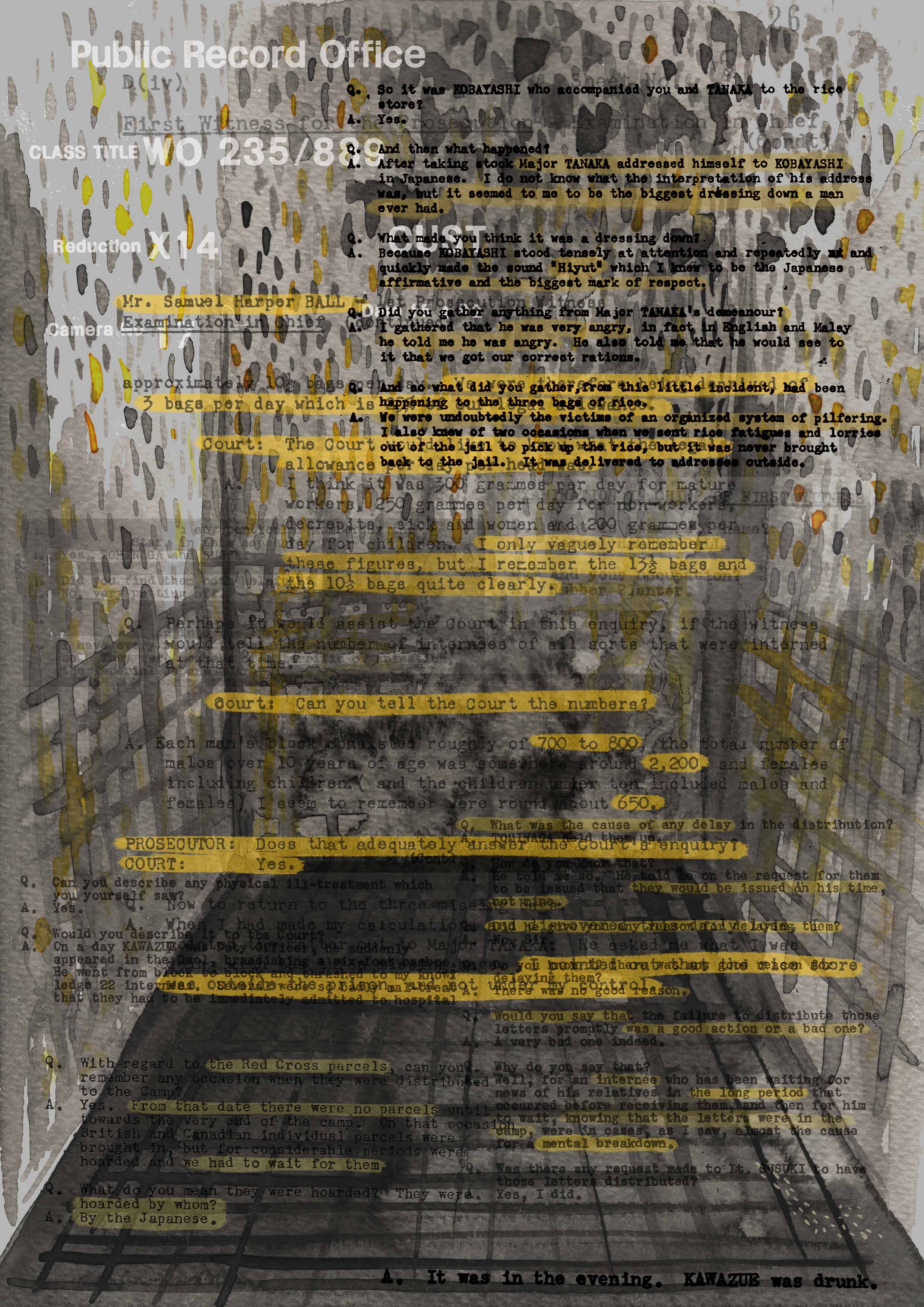Samuel Harper-Ball was a man who held many roles. These roles, both leadership and otherwise, helped form him into a man who was not afraid to speak his mind, regardless of who the target was. He was invaluable to the lives of his fellow internees. One of the most important roles in his life was his role as that of the first Prosecution Witness in the infamous Sime Road Camp Trials. His testimony opened these trials, a set of trials which were just one of the many held to prosecute Japanese military personnel for their war crimes in Singapore and other locations during the Second World War.
Harper-Ball had worked as a rubber planter before the fall of Singapore and was an avid member of the affairs of the Johore Planters’ Association where he held the role of Chairman for four years consecutively.
At the Annual General Meeting of the Johore Planters’ Association on 14 May 1938, Harper-Ball publicly advocated that the Johore Government ought to be financially responsible for preventing wild animals, such as elephants, from damaging estate property due to the substantial revenues earned from “quit rent alone” and also that they promote “the establishment of co-operative societies. Furthermore, two years later, he also advocated for the establishment of trade unions as he believed that it would help stabilise the labour problems in Johore.
On 16 May 1939, Harper-Ball took an oath of office as a member of the State Council of Johore. At the time of the appointment, Harper-Ball was also known as the manager of Layang Rubber Plantations Ltd. Alongside that, he was also a member of the Indian Immigration of Malaya, a member of the Council of the Planters’ Association of Malaya, the Commissioner for Local Defence of Johore and the Commandant of the Johore Defence Forces where he was awarded the rank of Lt Colonel.
After the fall of Singapore, Harper-Ball was interned alongside thousands of others. He was first ordered to parade at the Padang to somewhere near the Sea View Hotel. He was given no food but only clothes for 10 days. He then had to march to Changi Gaol where he was interned. At Changi Gaol, he held the role of Block Commandant of B Block which comprised one third of the men’s section in camp. All internees at Changi Goal or Changi Prison were eventually moved to Sime Road Camp.
As Camp Commandant, Harper-Ball was responsible for the welfare of the internees in the camp, where his duties included enquiring into whether the internees were receiving sufficient food. As it so happens, a shortage of rice was a major problem in the camp.
Harper-Ball had attempted to complain to Susuki Sakae, one of the accused persons in the trial of Susuki Sakae and others, through chief interpreter and accused, Tominaga Jikko, but was unable to do so. Nevertheless, it could be said that the situation was so bad that it would have been obvious to anyone, even Susuki. Instead, Harper-Ball complained to one Major Tanaka, who was in charge of the Commissariat, who thankfully listened to his complaint. Harper-Ball, with the assistance of his Quartermaster, discovered that they were illegally deprived of about 3 bags of rice per day, which was about 25% of their legal allowance. Putting this into context, there were about 3000 to 3500 internees in the camp who, thus, lacked food.
Due to Harper-Ball’s complaint, Tanaka reprimanded one of the accused persons, Kobayashi Shoshiro, the officer in charge of the rice store, before assuring Harper-Ball that the internees would get the correct rations. Harper-Ball had discovered, through an informant, that these bags of rice were stolen and sold on the black market. In an attempt to stop the rice from going missing, Tanaka, on Harper-Ball’s request, transferred the rice from an outside store to an inside store and gave instructions to both Harper-Ball and Kobayashi that the rations were to be weighed and distributed using a scale. However, bags of rice were still being stolen by the fourth accused person, Kawazue Hatsuichi. Harper-Ball discovered this from an inspection of a Daily Work Book which he used to keep track of the rice. He also accused Kobayashi of stealing the rice beforehand as he was in charge of the rice store.
As a result of Harper-Ball’s complaints, he was told by his informant that the Japanese Administrative Staff, Kobayashi in particular, were going to hand him over to the fearsome Kempeitai. In addition, Harper-Ball was also concerned that his actions had caused the life of his informant to be at risk. Thus, this prompted the fearless Camp Commandant to retire into the background.
Apart from the issue of the rice shortage, Harper-Ball was also able to persuade Tanaka to inspect the camp regarding complaints of over-crowding. This resulted in internees being moved from the camp. This was despite Susuki, who was the Camp Commandant for the Japanese military, ignoring all of Harper-Ball’s complaints and requests to inspect the camp.
Harper-Ball also testified in court to the physical violence carried out by Japanese officers against the internees and the withholding the Red Cross parcels and letters from the internees.
Harper-Ball’s contributions were numerous, and he did his best to make sure the lives of the internees became slightly better. About 218, or 4.8%, of all Allied internees held by the Japanese military had died during their time in captivity. If Harper-Ball had not constantly made complaints or protests, despite threats to his own life, that number would certainly be higher. Most would not have dared to protest against the Japanese. Harper-Ball did what many were not willing to.
